1. New Orleans Jazz Funeral
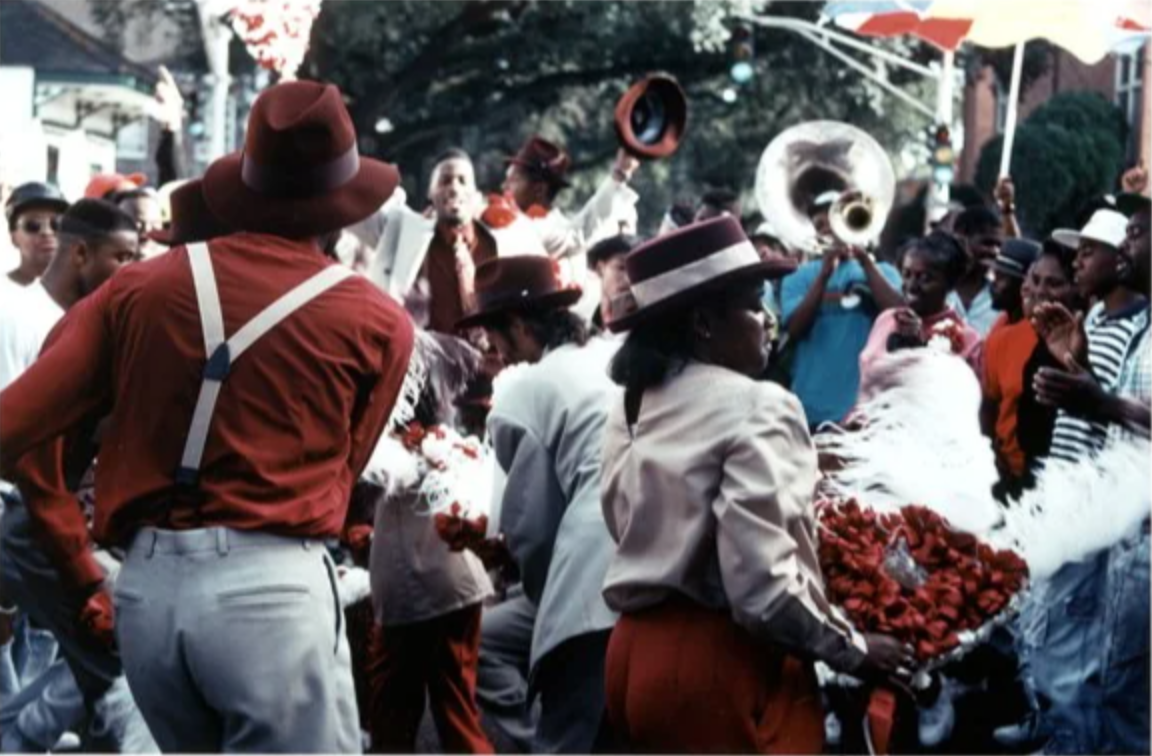
Image Source: Reddit
We've got to start this list with the most famous of funeral traditions - the New Orleans Jazz Funeral. Funerals involve lots of emotion, but sadness is probably the most applicable. Not in New Orleans though - they take to the street, playing upbeat music and singing happy songs, celebrating the life of the deceased. They believe that life should be celebrated, even in the face of loss.
2. Tibet Sky Burials
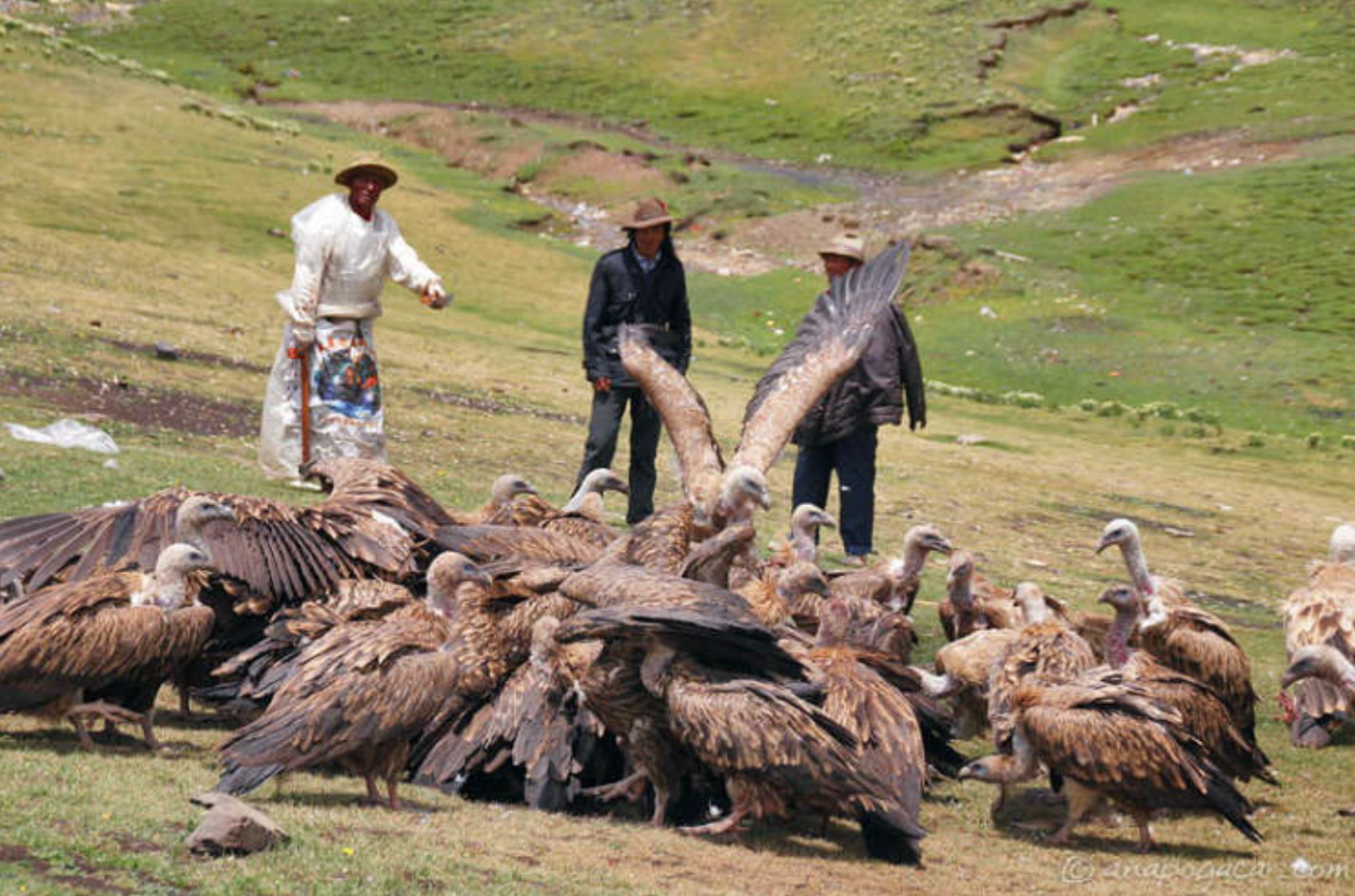
Image Source: Reddit
In Tibet and Mongolia, the majority of Buddhists still chose this as their funeral. They believe in the transmigration of the soul after death, so the tradition goes as follows: after death, the body is transported to the top of a mountain and chopped into pieces. From here, the vultures feast on the body, thus returning the body to the earth, completing the circle of life.
3. Fantasy Coffins In Ghana
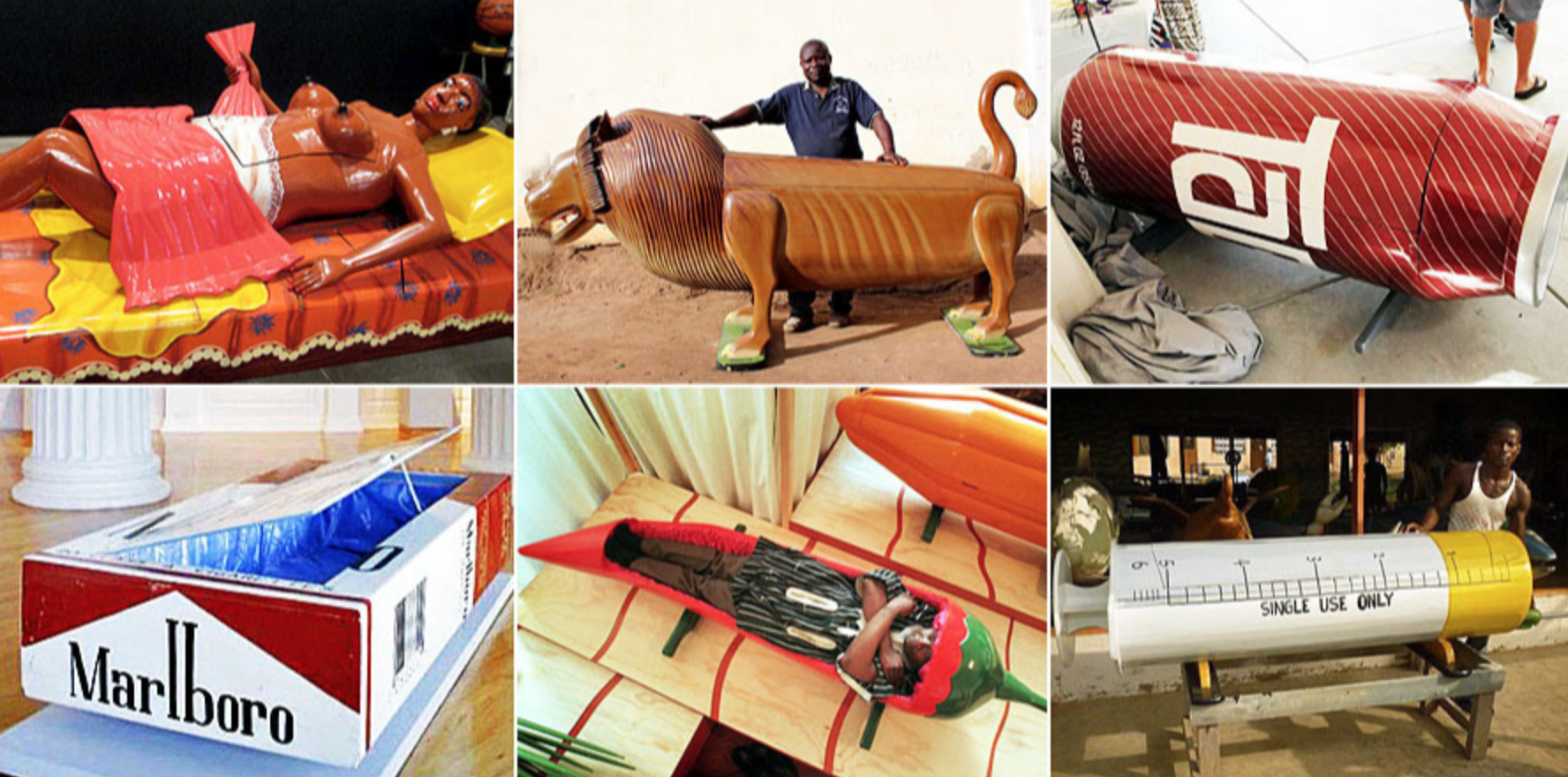
Image Source: Reddit
This might be the funnest funeral tradition out there, and it takes place in Ghana. In Western countries, black is the most commonly used color at funerals, but that doesn't happen in other parts of the world. Along with using bright colors like green, white and yellow, the Ghanaians also have amazing coffins that represent something the deceased loved. Apparently, a fisherman had a coffin shaped like a fish!
4. Buddhist Monk Funerals In Japan
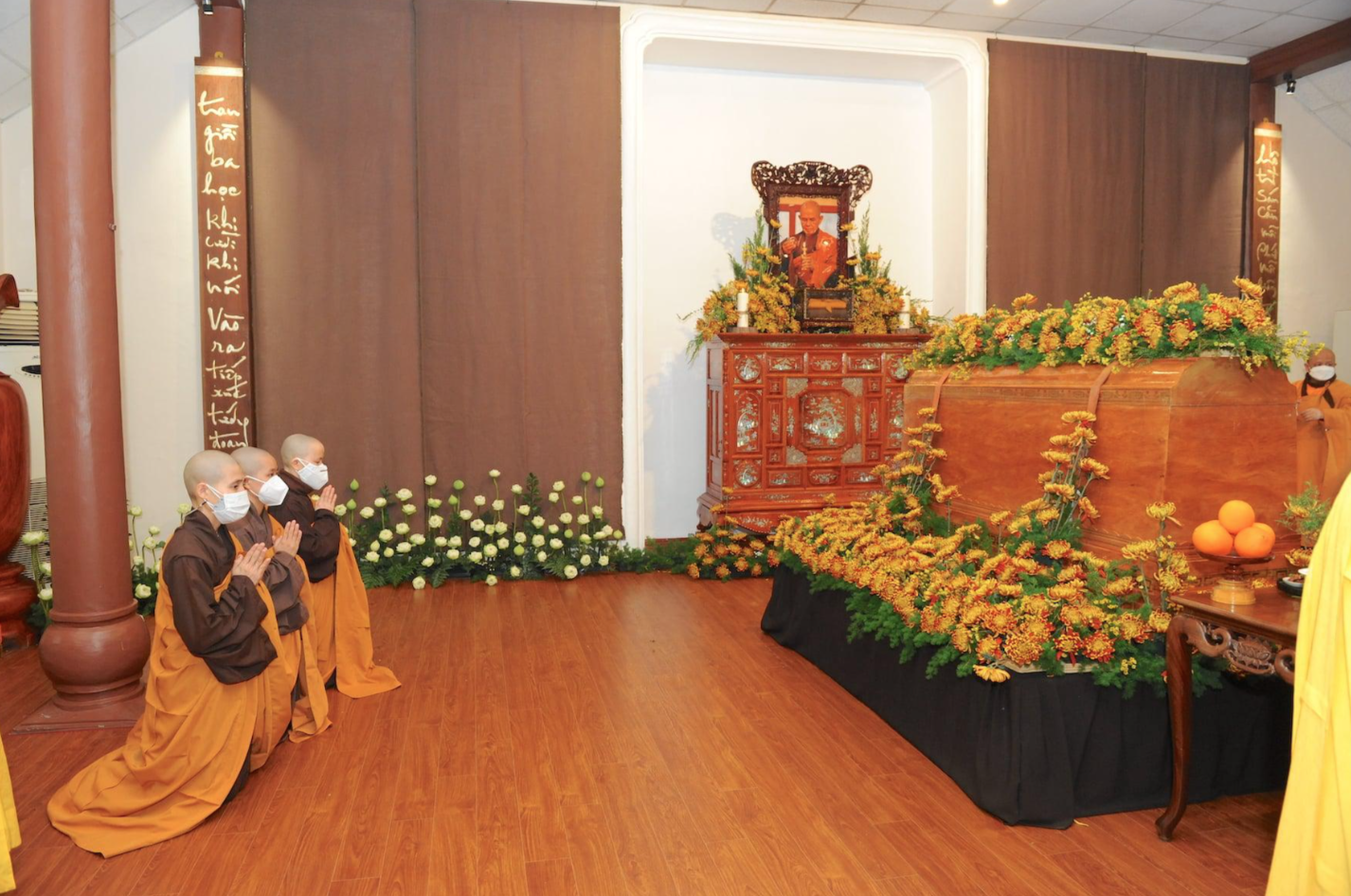
Image Source: Reddit
In Japan, Buddhist Monk led funerals provide a sense of spiritual serenity to those grieving. Monks conduct rituals and chant prayers to guide the departed soul. This tradition highlights Japan's spiritual connection and belief in the afterlife. The solemn ceremonies offer peace and solace to the grieving families, leading to a sense of closure.
5. Day Of The Dead
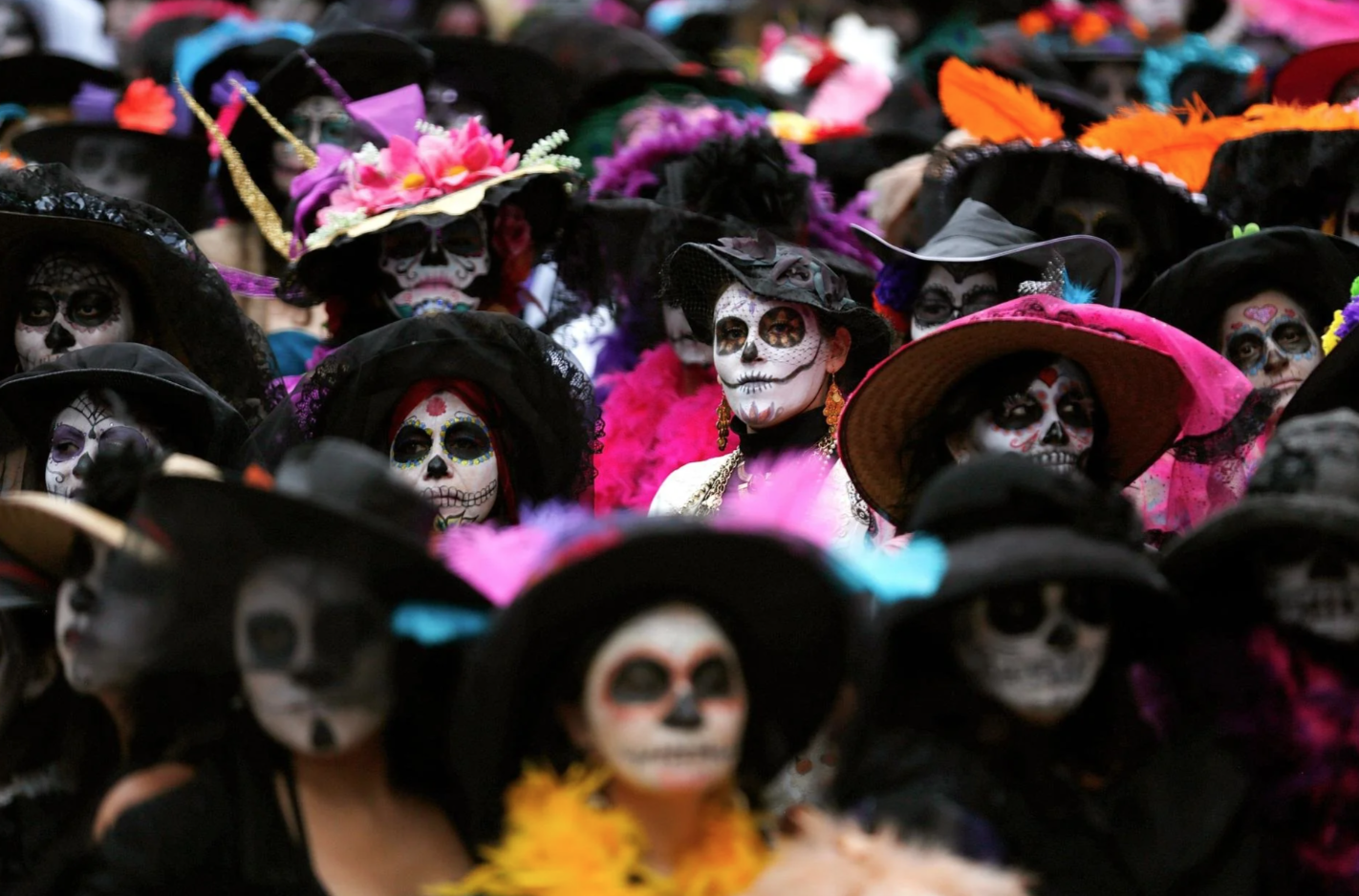
Image Source: Reddit
Venturing south to Mexico, the vibrant Dia de los Muertos beckons. This colorful celebration honors deceased loved ones with altars adorned with marigolds, sugar skulls and amazing food. Families believe that during this time, the spirits of the departed return to join the living. Parades and music mark the occasion, blending life and death.
6. Jesa Ceremonies
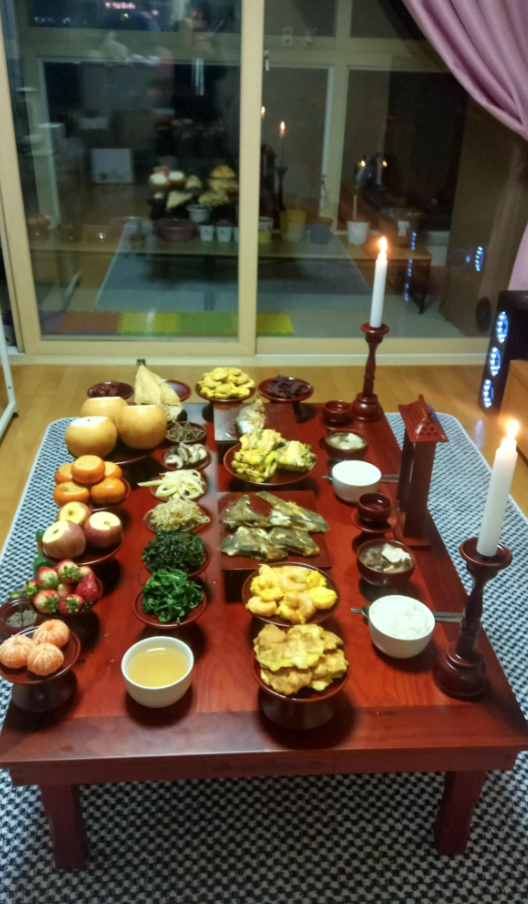
Image Source: Reddit
In South Koran, Jesa ceremonies honor ancestral bonds. Offerings of food and drink are arranged on an altar to ensure the well-being of the deceased in the afterlife. Families gather, acknowledging their roots, and paying respects through this tradition. The connection between generations remains strong as prayers and sentiments bridge the gap between the living and the dead.
7. Famadihana
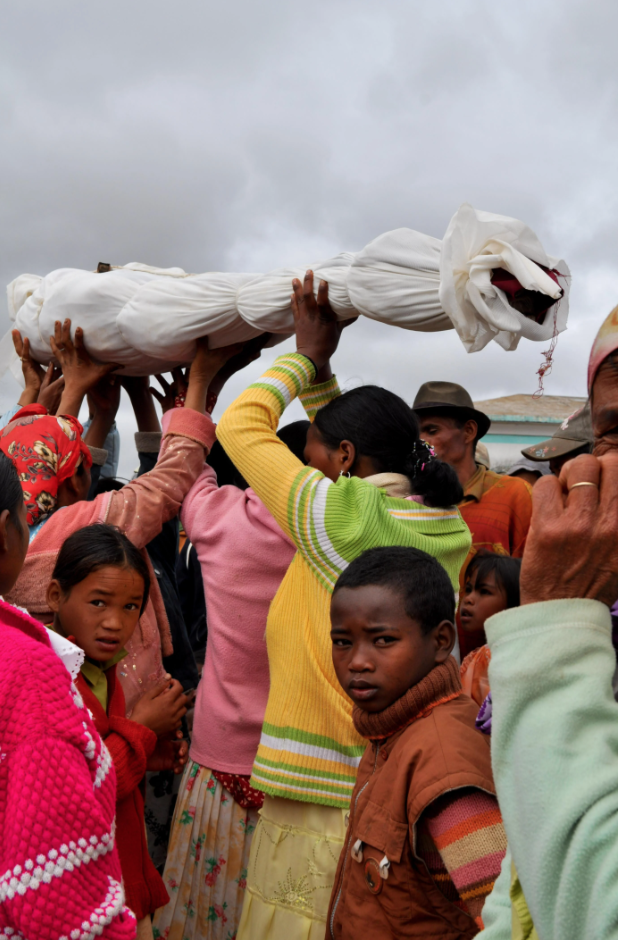
Image Source: Reddit
In Madagascar, they have the Famadihana ceremony which is a staple in the culture of the Malagasy people. Every 5 to 7 years, each family visits their own crypt, where they exhume and rewrap the bodies of their ancestors, spraying them with perfumes and wines - at this point, music is played and the families dance with the bodies!
8. Sky Lanterns
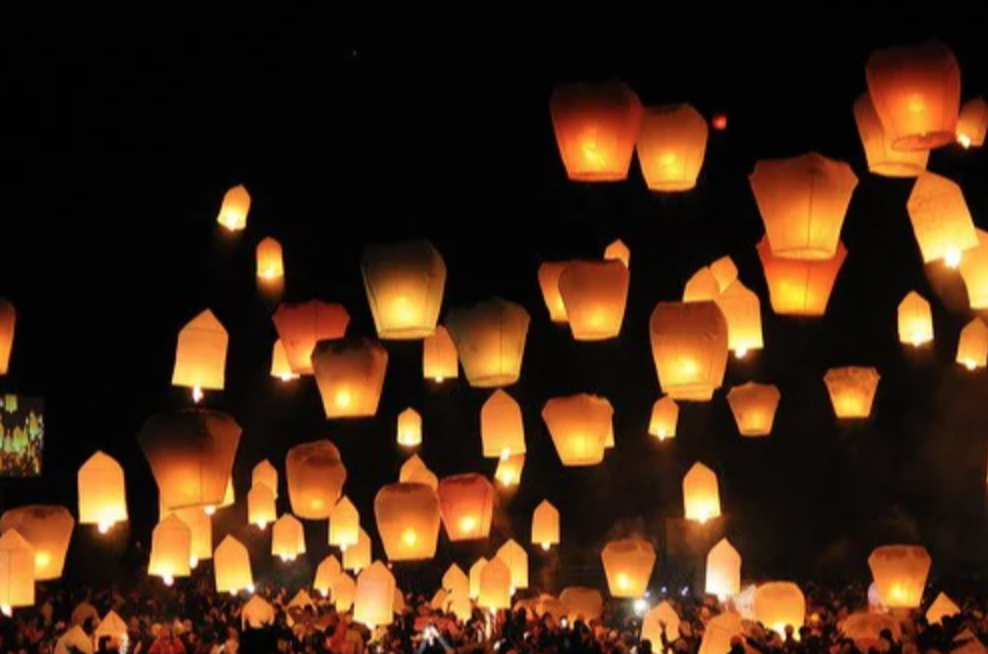
Image Source: Reddit
In Sweden, they have a great funeral tradition that involves sky lanterns. The Swedes believe that the release of the sky lanterns symbolize the passage of spirits to the afterlife. When a loved one dies, families and friends gather together to release a number of different sky lanterns into the sky, all have messages of love for the deceased.
9. Hindu Cremations

Image Source: Reddit
India is known for its Hindu cremations along the Ganges River. Bodies are placed on open funeral pyres, where the bodies are cremated. This tradition is rooted in the belief of the soul's eternal cycle, reincarnation. The Ganges' waters play a vital role as the ashes are often scattered into the river, symbolizing the release of the soul and its journey to the afterlife.
10. Kolyada
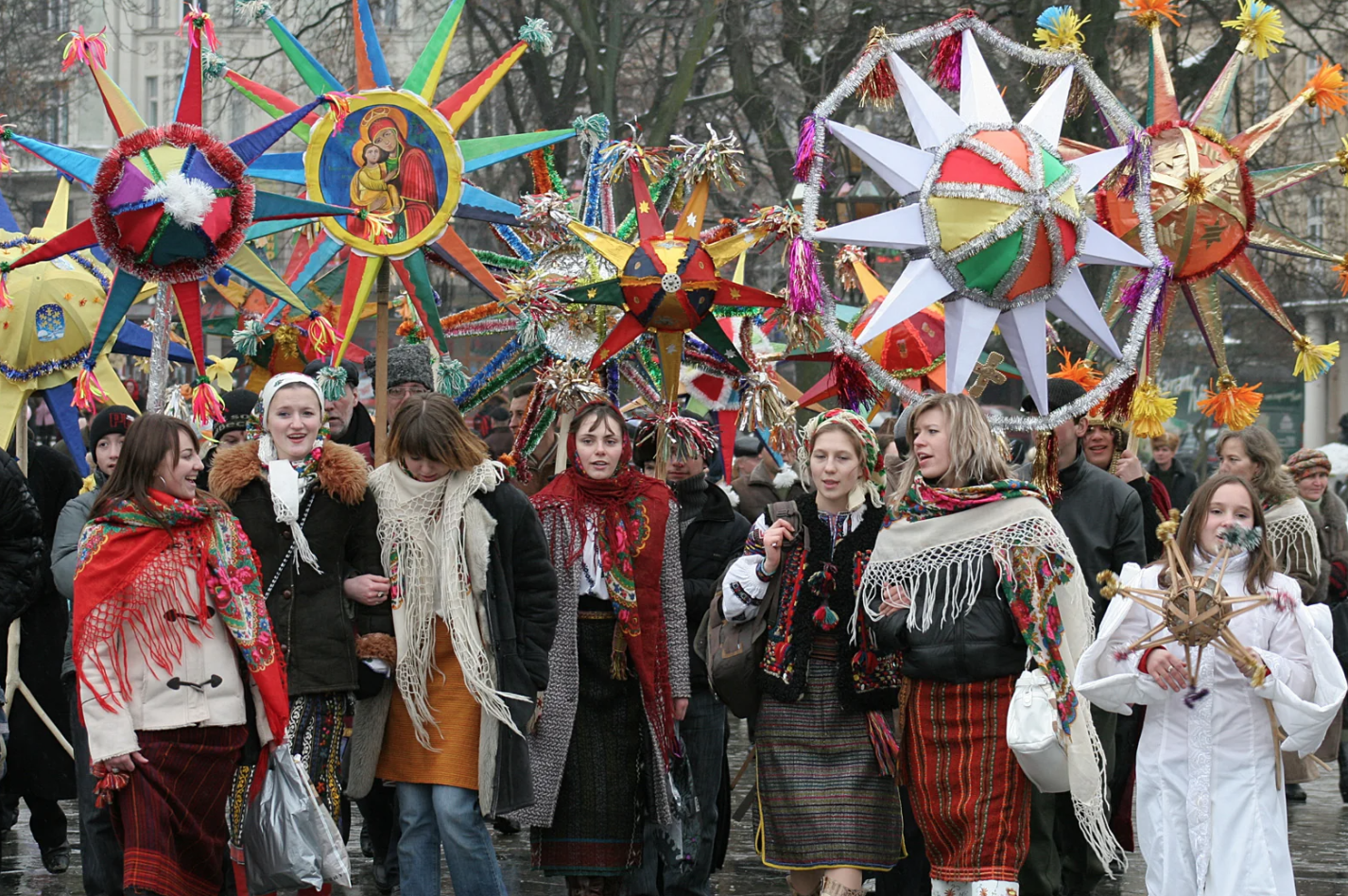
Image Source: Reddit
During Russia's winter solstice, Kolyada Festival bridges the gap between life and death. Families visit cemeteries, leaving offerings for deceased loving ones. The festival's timing aligns with the winter solstice, symbolizing the rebirth of the sun and the promise of renewal. The tradition's fusion of ancient customs and seasonal symbolism offers solace and a sense of connection to those who've passed.
11. Sad Brazilian Funerals
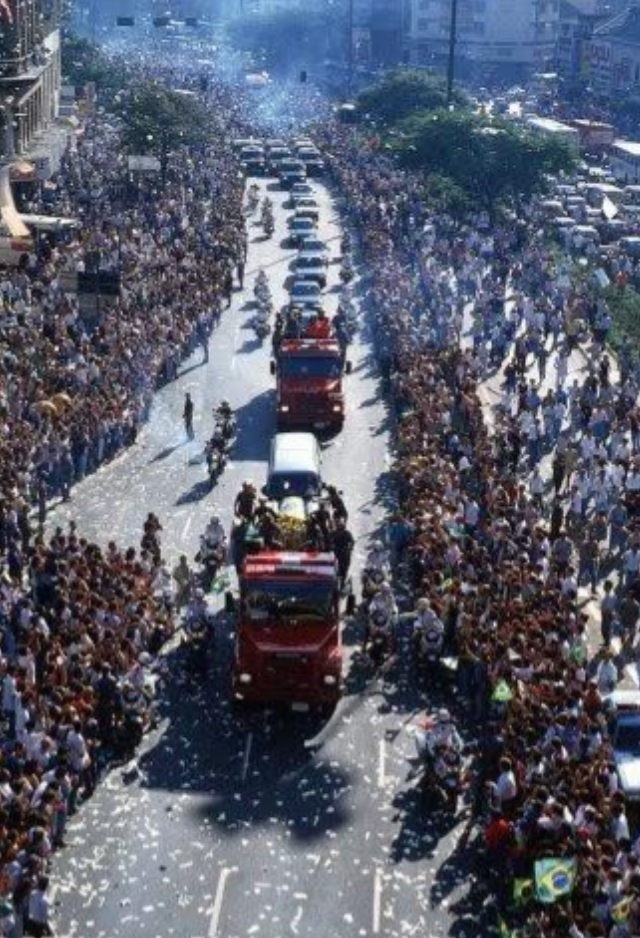
Image Source: Reddit
Brazil, unlike other South American countries, don't celebrate life during a funeral. Instead, it is customary for the families of the deceased to express their grief through vocalizations. They often wail, scream and cry, and many Brazilians will hug and kissed their deceased loved ones. Every country and culture deals with death very differently!
12. Dancing With The Dead In South Africa

Image Source: Reddit
For the Xhosa people of South Africa, there are many funeral rules. For example, the body of the deceased must be returned to their homeland, where the mother and father (if still alive) will sit with the body through the night. When it is time for the burial, singing, dancing and drumming surround the coffin as it is lowered into the ground.
13. Mummification
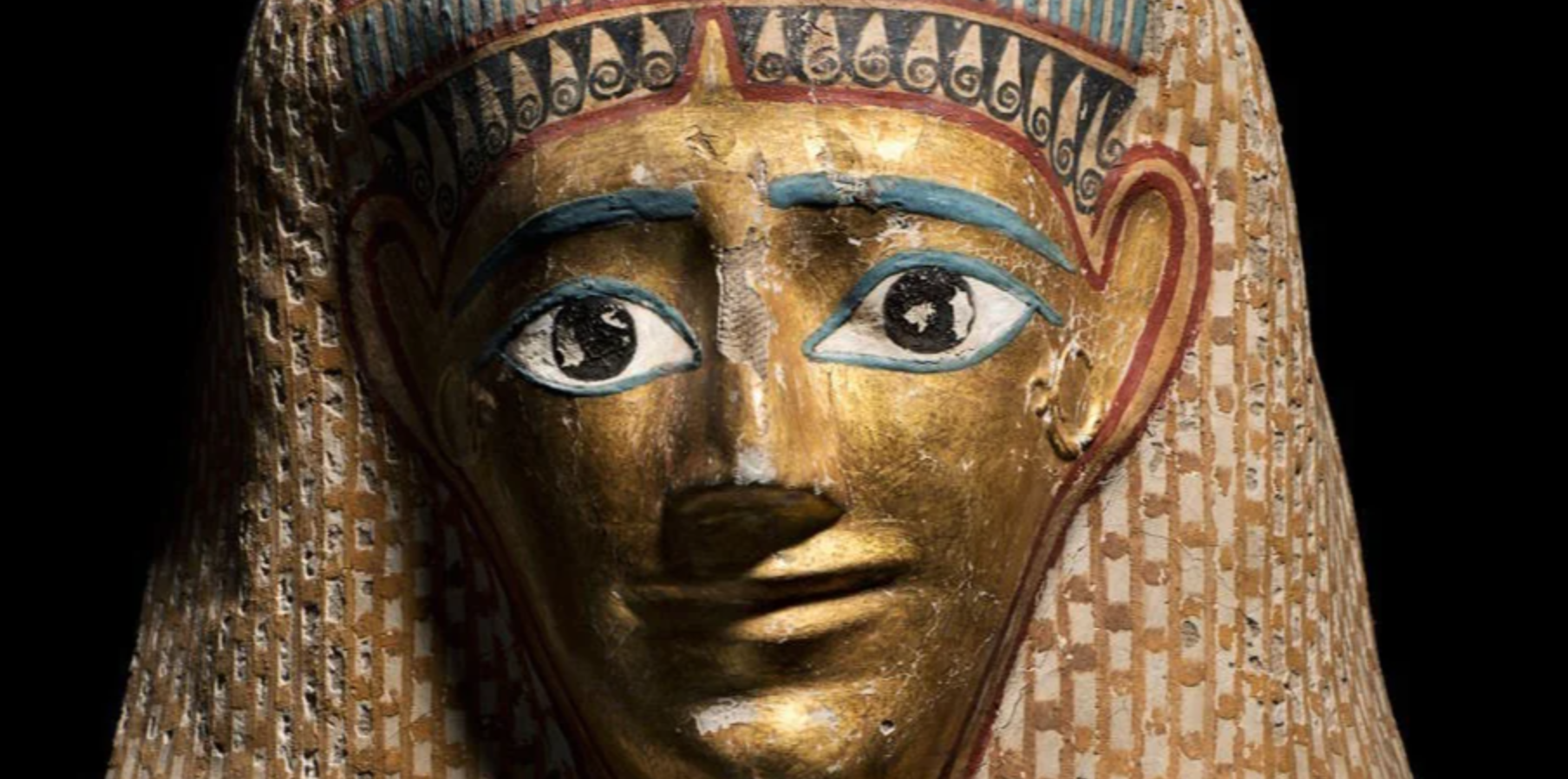
Image Source: Reddit
We couldn't do a list without talking about the Egyptian tradition of mummification. Now, this practice is long since vanished, though there are some incredibly rare cases of it. Take Vladimir Lenin - one of Russia's communist leaders - he was mummified when he died in the 1920s. If you want, you can actually pay his mummy a visit, as his body lies in a Moscow museum.
14. Kissing In Italy
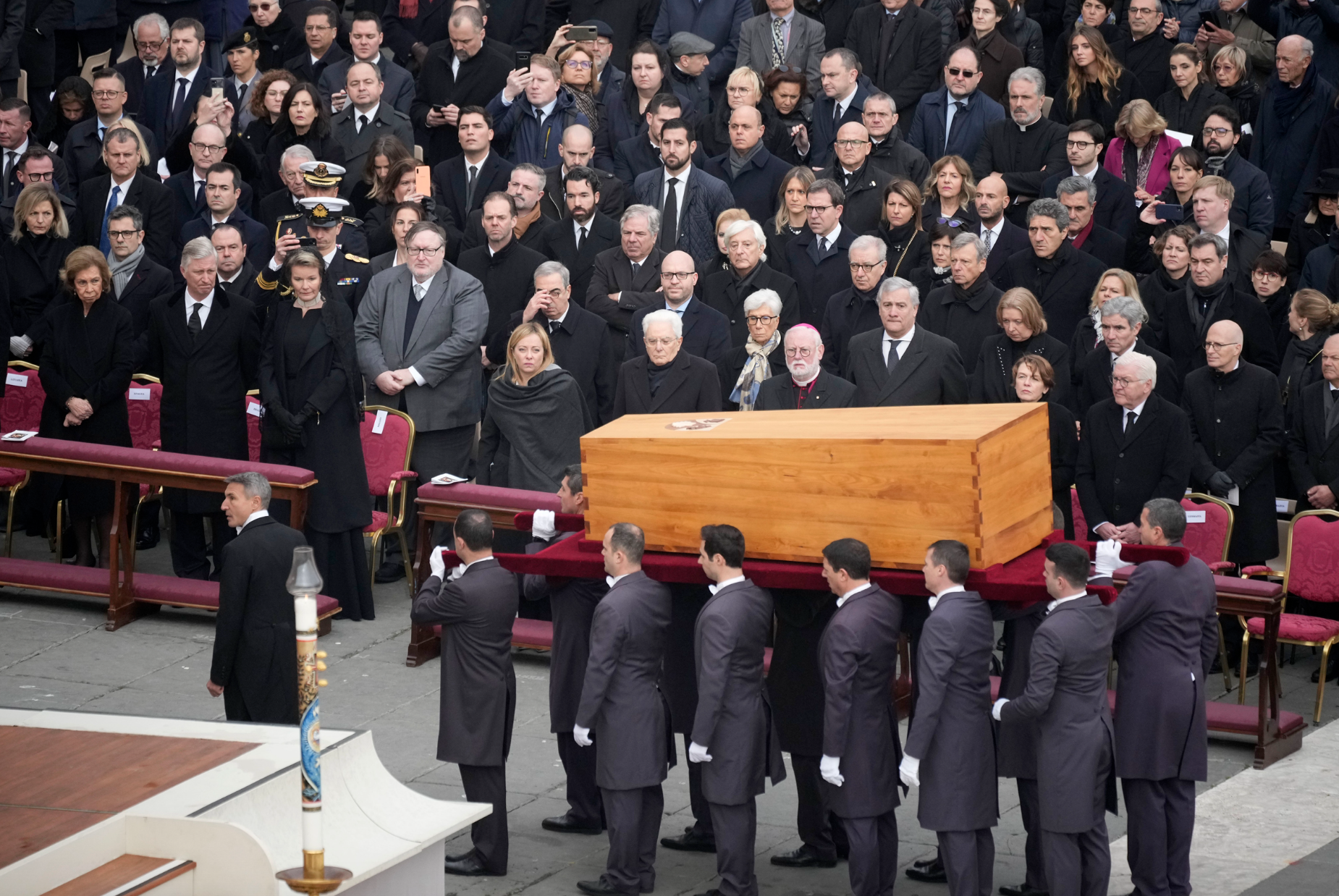
Image Source: NBC News
Italy's main religion is Catholicism and has been for many years. Many Italians practice this religion and, because of this, their funerals tend to align with Catholic customs. However, the majority of Italian funerals have an open casket, and friends and family are encouraged to kiss the cheek of the deceased as a sign of respect - even the children are known to take part.
15. Cremation On The Bagmati River
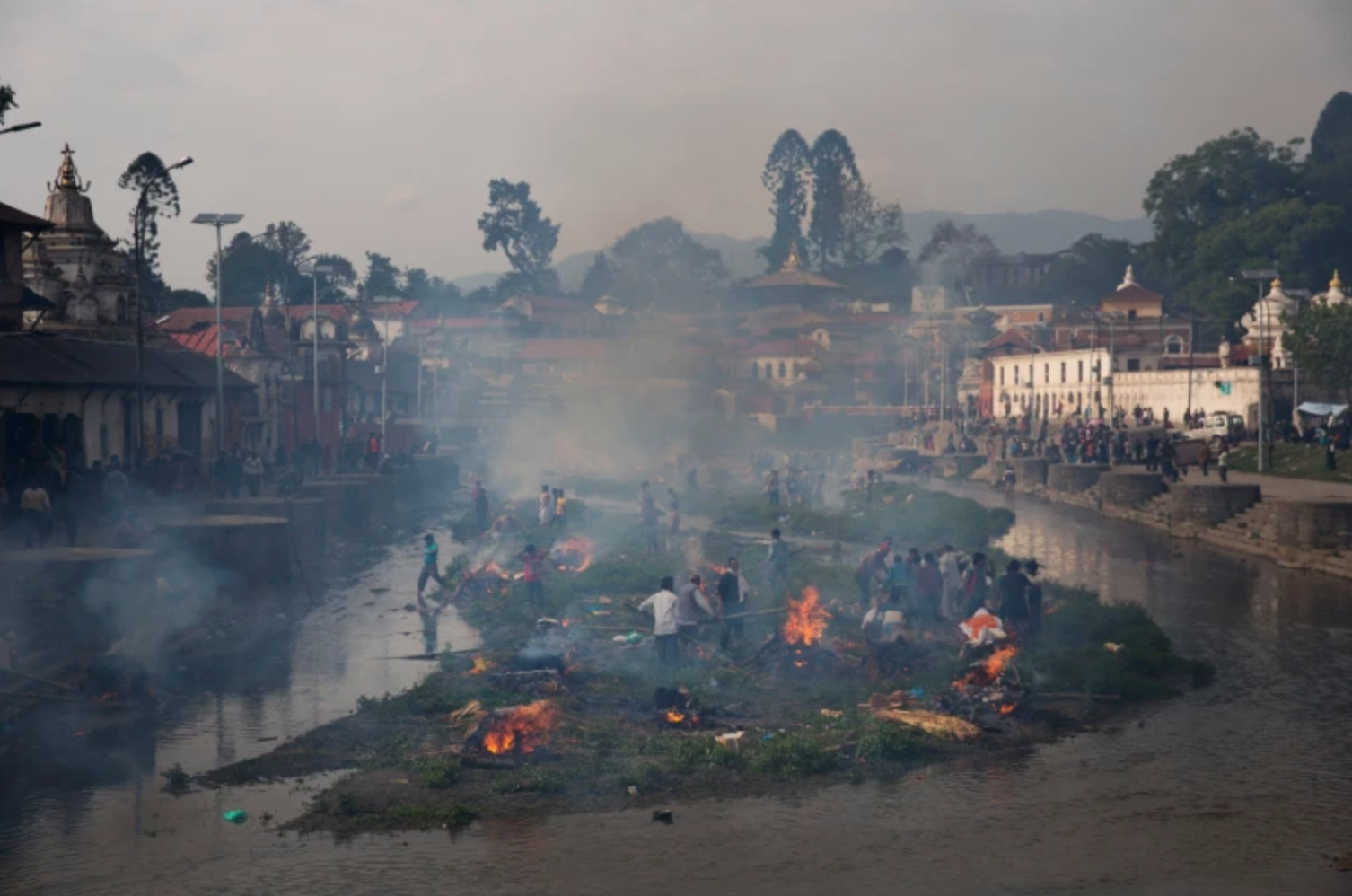
Image Source: NBC News
In Nepal, people who practice Hinduism are cremated next to the Bagmati River upon their death. Apparently, for Hindu's in Nepal it is tradition for their bodies to be dipped into the river three times before they are cremated, ensuring that the cycle of reincarnation has been completed. Also, the eldest son of the deceased must bathe in the river immediately after the cremation has finished.
16. All Saints' Day

Image Source: Reddit
In Poland, All Saints' Day brings families together to honor their deceased loved ones. They bring and light candles to cemeteries and place colorful flowers on the graves. The Polish people have a deep connection to their ancestry and this day reflects their celebration of life. All Saints' Day is a big event in Poland, and the majority of Polish people celebrate it.
17. Toraja Funeral Rites
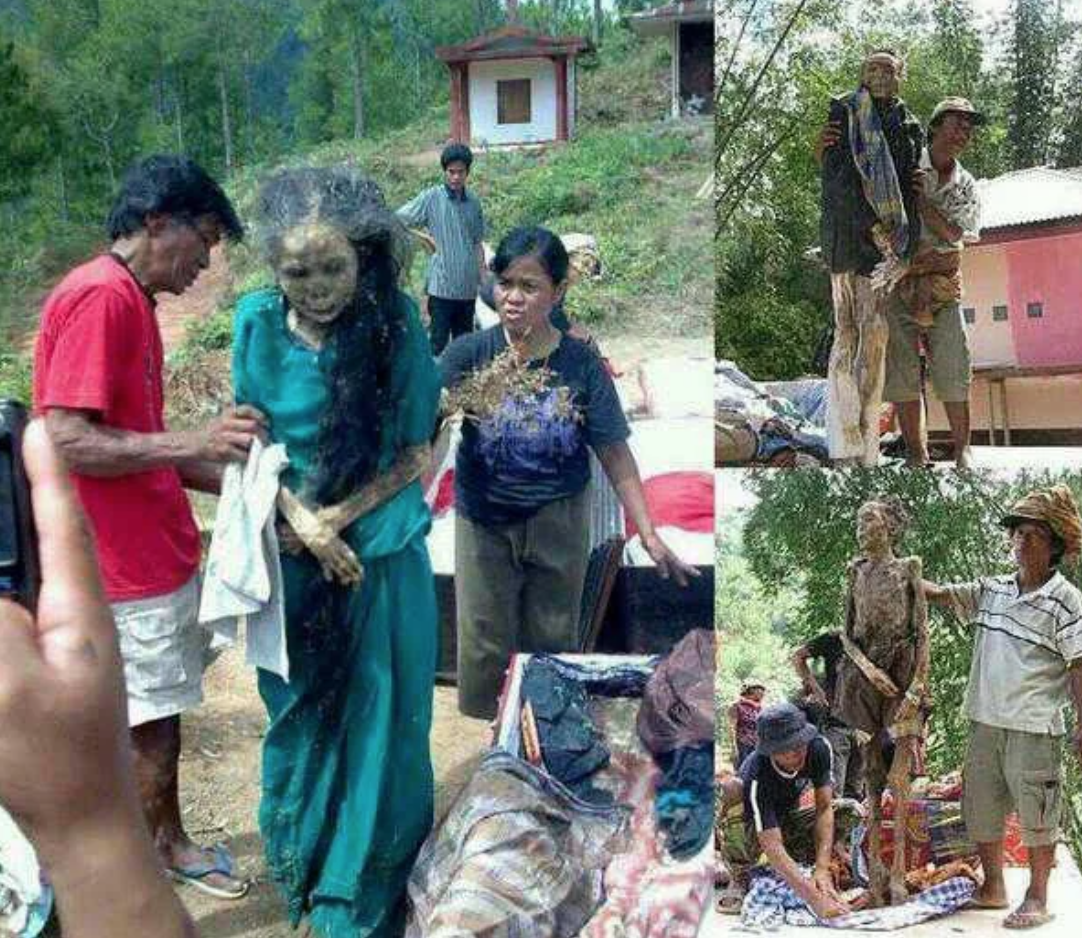
Image Source: Reddit
Travelling to Indonesia unveils the Toraja Funeral Rites. These ceremonies are marked by elaborate rituals, communal feasts, and even the temporary un-burial of the deceased. Animal sacrifices signify respect for the souls journey to the afterlife. They perform these rituals as the Toraja believe that the spirit lingers until the rituals are performed.
18. Jewish Burial Customs

Image Source: Reddit
Over in Israel, the Jewish burial customs reflect a deep-seated reverence for life and death. They must have a prompt burial, whereby the deceased are laid to rest in simple wooden caskets. This practice resonates with the Jewish belief that it is important to return the body to earth swiftly and humbly. For them, it acknowledges the sacred cycle of existence.
19. Qingming Festival
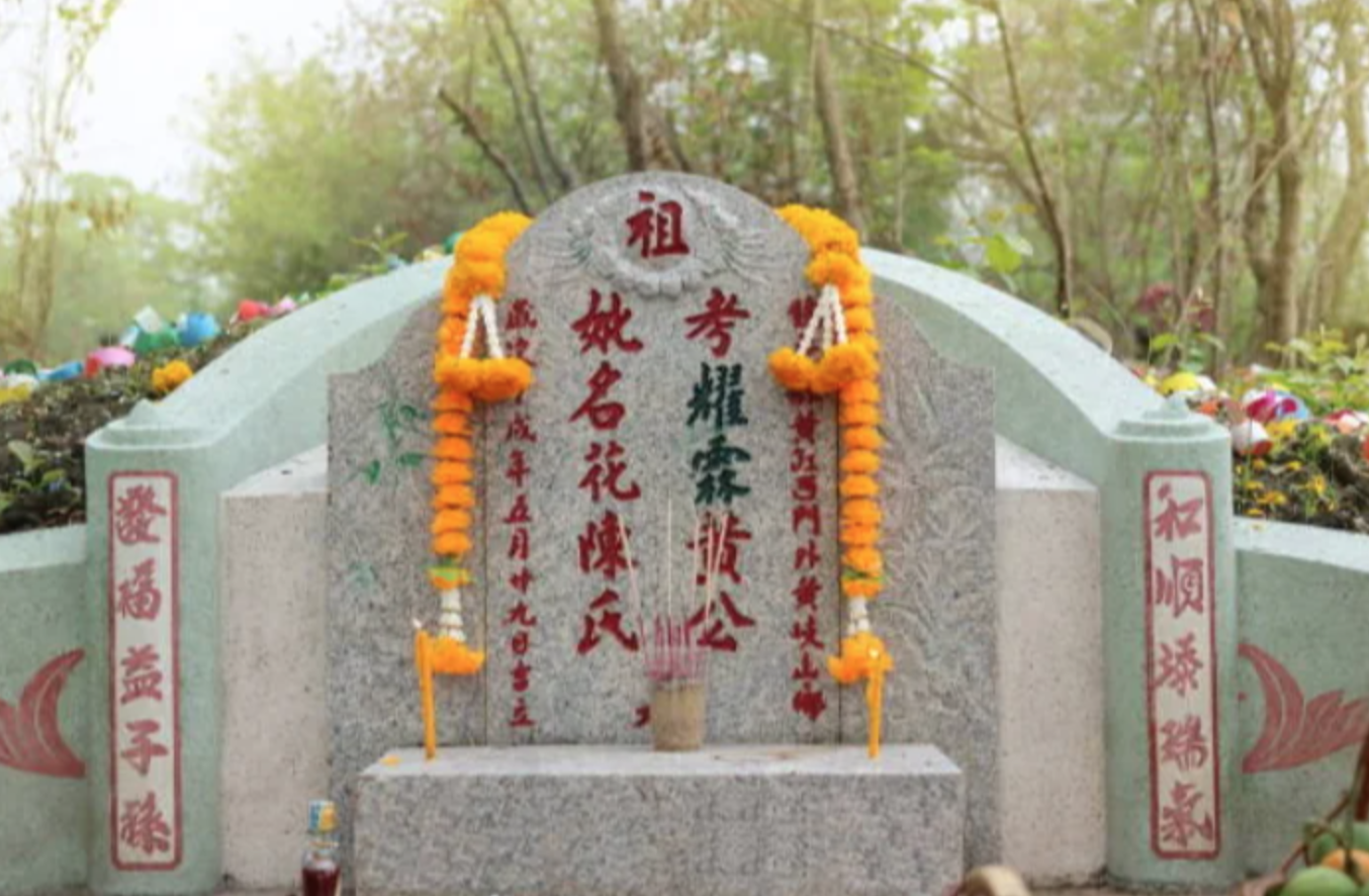
Image Source: Reddit
The Qingming Festival in China offers a poignant way to honor ancestors. Families gather at grave sites to clean the surroundings, make offerings and even fly kites. This tradition bridges the gap between generations, ensuring that the departed's legacy remains alive. This is an important festival as it ensures the bond between the living and their ancestors.
20. Voodoo Funerals
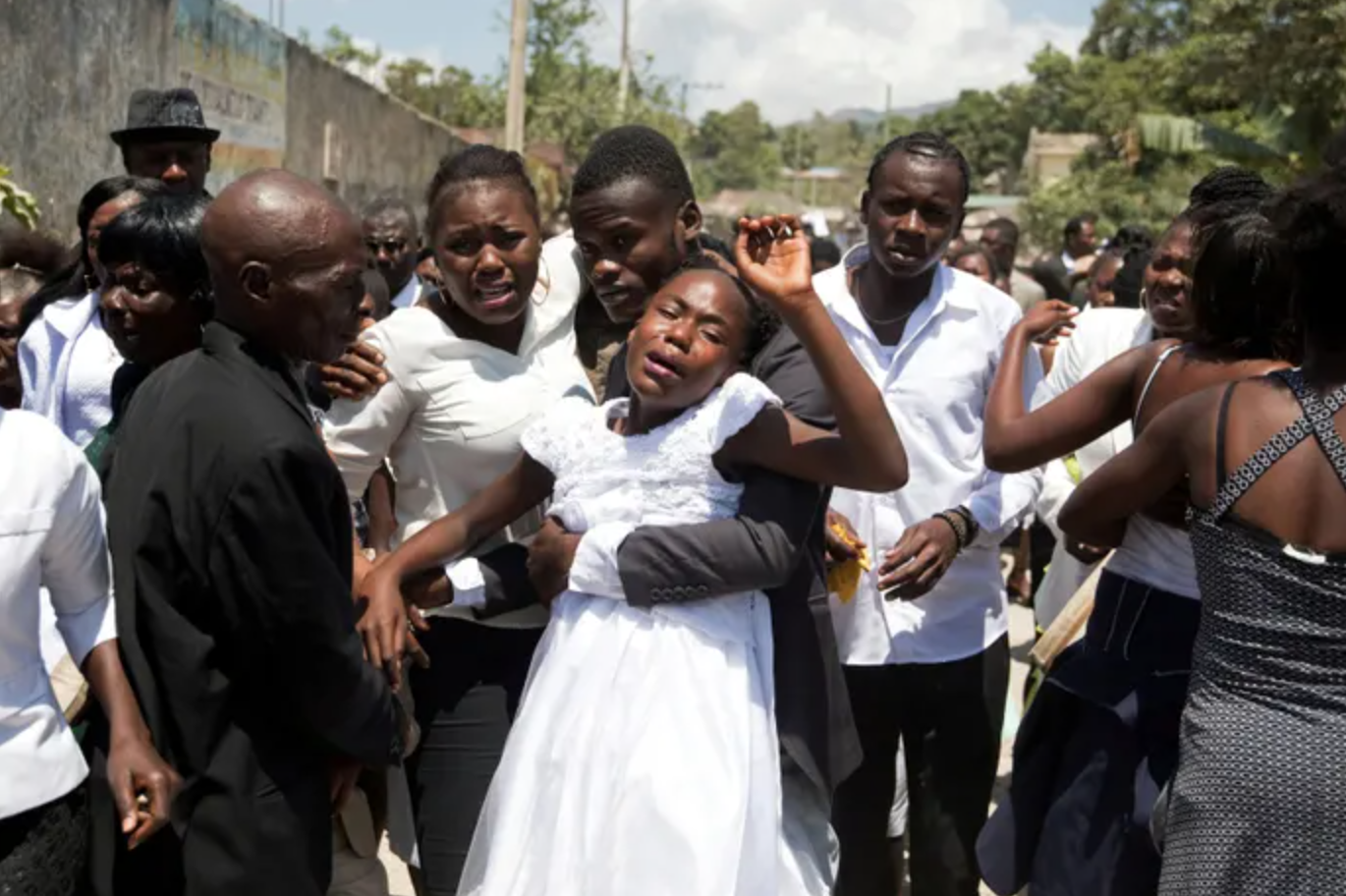
Image Source: The Guardian
Over in Haiti, voodoo funeral rituals are an important part of the burial process. Apparently, music, dance and also spirit possession form the heart of these ceremonies and, through vibrant expressions, mourners channel the energy of the deceased's spirit, affirming their continued presence. These rituals reflect a unique blend of spirituality, culture and a celebration of life and death.
21. Döstädning

Image Source: Routes North
Also known as 'Death Cleaning', Swedish people do this before their death. When someone dies, loved ones usually have the painful task of going through the deceased possessions and belongings to make sure everything is in order. However, Swedish people often practice Döstädning whereby they declutter and simplify their possessions to spare their family members having to sort everything out.
22. Greek Kiss
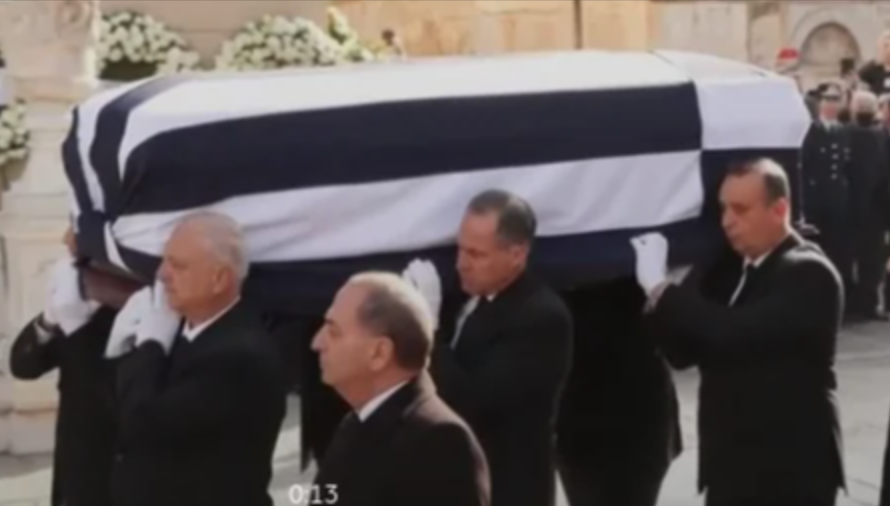
Image Source: Reddit
In Greece, funerals are usually similar to that of American or Canadian funerals. They have similar customs like prayer and hymns, and similar dress code such as dark or black clothing. One of the rules, however, is that the mourners give a 'Kiss of peace and anointing', whereby the mourners will give a goodbye kiss on the cheek of the deceased.
23. Igbo Death Rites
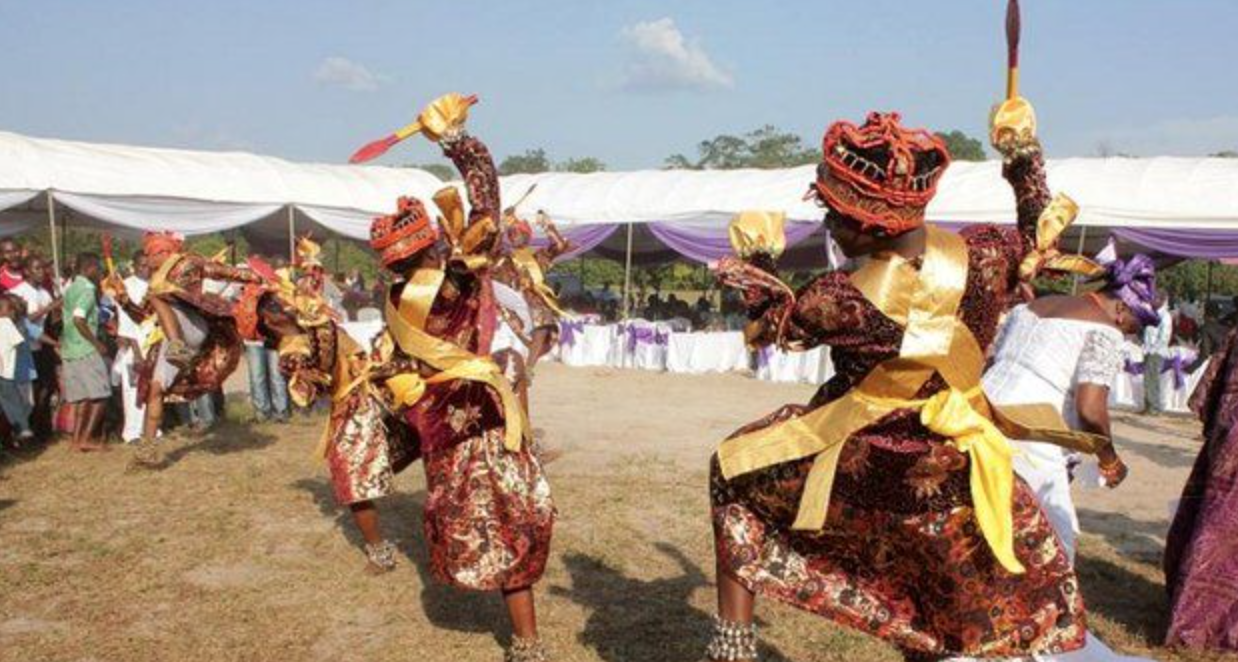
Image Source: BBC
In Nigeria, Igbo death rites are a testament to the celebration of life's transition. Elaborate ceremonies, dances and rituals guide the spirit to the afterlife. Each gesture is a tribute to the departed, reflecting a harmonious blend of culture and spirituality. This is a really popular tradition, and is seen at many funerals in Nigeria.
24. Mourning Rituals
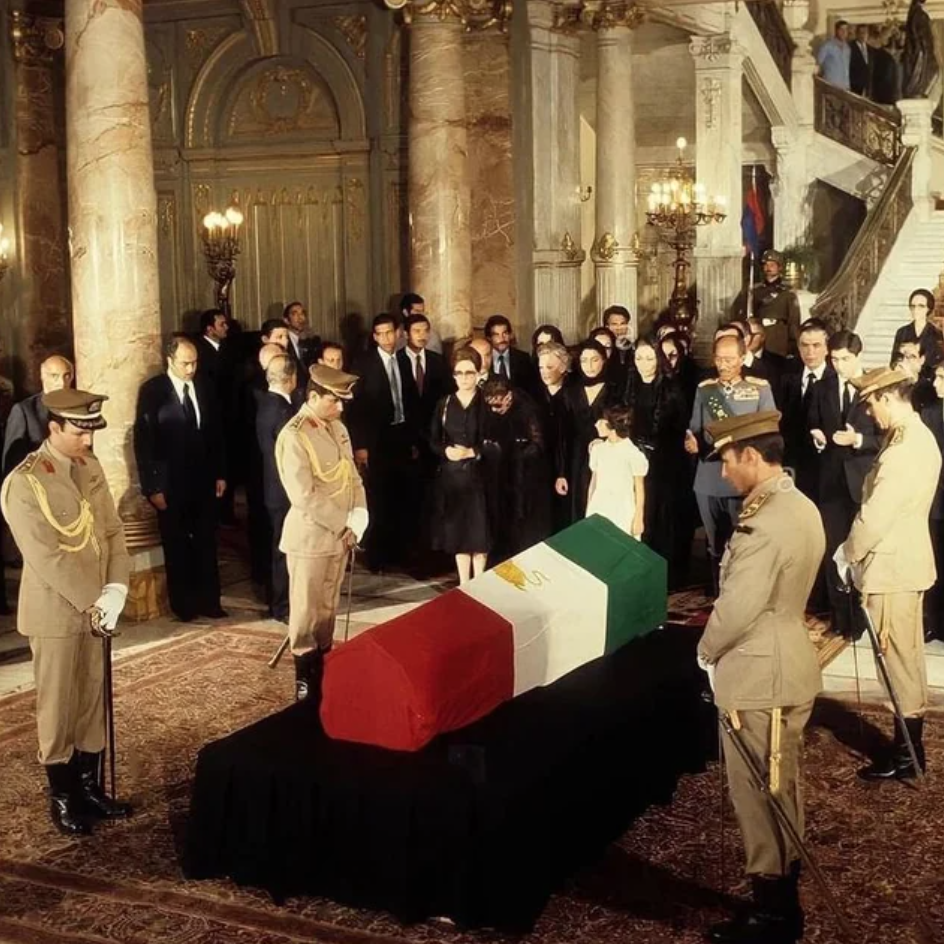
Image Source: Reddit
Iran's rituals of mourning, observed during the Shiite holiday of Ashura, is a popular rule found in Iranian funerals. It involves a lot chest-beating and reflection, whereby the mourners attempt to externalize their grief. Usually, the entire community gets involved and showcases a lot of resilience through their mourning, helping the grief to pass.
25. Ancestor Worship
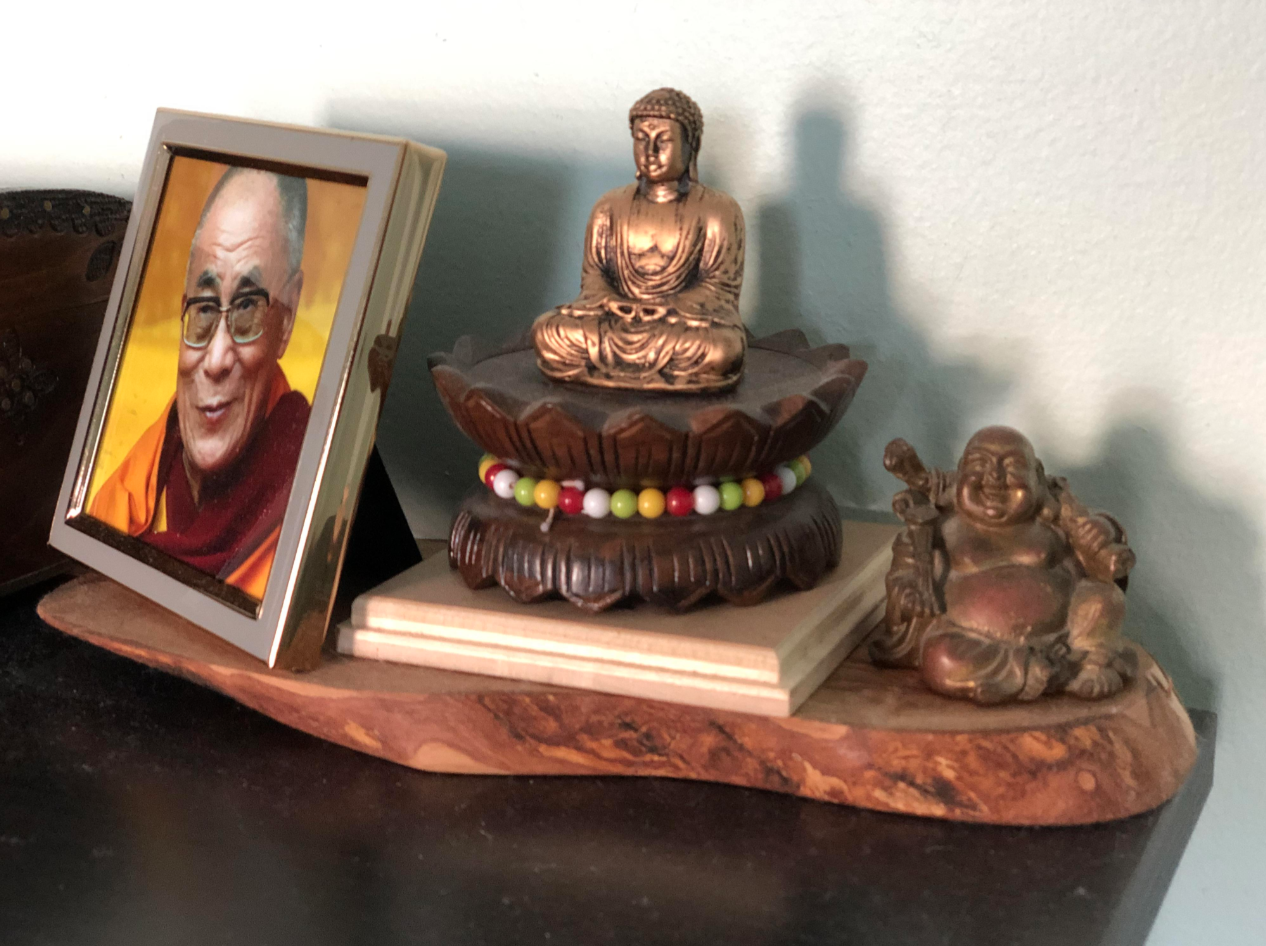
Image Source: Reddit
In Vietnam, ancestor worship forms a deeply ingrained tradition. Families maintain altars adorned with photographs and offerings, creating a spiritual place to honor and remember their ancestors. They do this through different rituals and prayers, and it helps to ensure that their ancestors memory lives on through the younger generations.
26. Speedy Spanish Burials
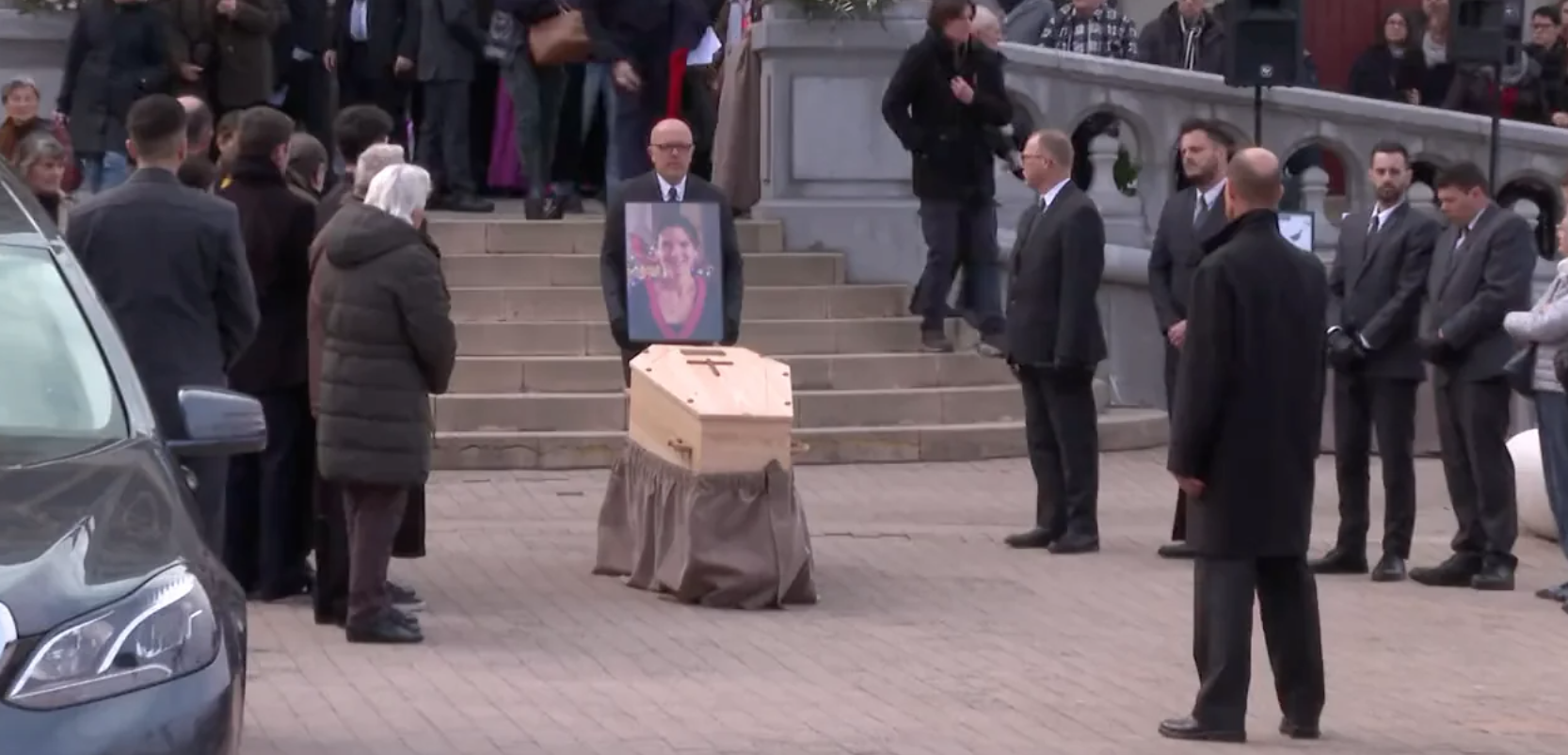
Image Source: Reddit
Spain, again, is very similar to the standard customs of Western funerals. The one major difference, however, is that deceased Spaniards are buried no later than 48 hours after their death. That's a pretty speedy turnaround time! Other customs mean that burials don't happen for up to two weeks after the death, so 48 hours is very fast.
27. Aboriginal Smoking Ceremony
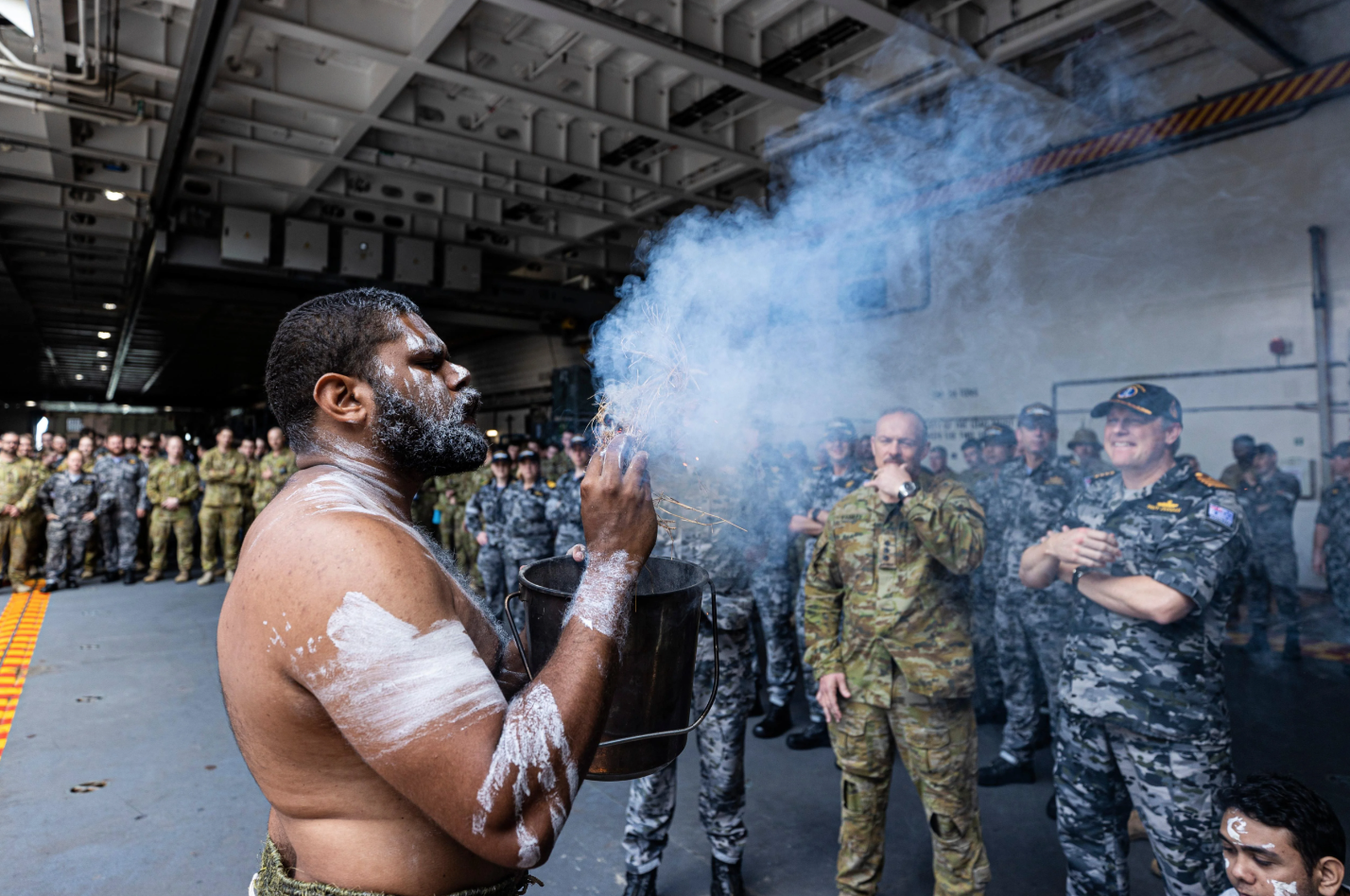
Image Source: Reddit
Over in Australia, the Aboriginal Smoking Ceremony is long-standing tradition amongst the indigenous people of Australia. It involves the use of smoke, in which they use to cleanse the deceased's spirit, ensuring it's free to journey beyond the physical realm. This is an ancient practice that is rooted in spiritual and physical connections to the land.
28. Royal Cremations

Image Source: RNZ
In Thailand, the funerals of members of their royal family and grand events that is viewed by an often mourning nation. Art, tradition and spirituality all come together to mark the passing of a Thai monarch with highly elaborate ceremonies. Apparently, these practices have been around for hundreds of years, dating back to the 17th century.
29. Festival of the Dead

Image Source: Reddit
In the Philippines, the Pista ng Patay, or Festival of the Dead, is a widely-celebrated event. During this event, locals respect, redress and offer food to the dead as they celebrate their lives and memories. It is meant to showcase the connection between the living and the dead, honoring their ancestors and ensuring that their memories live on.
30. Haida Totem Pole Memorial

Image Source: Reddit
Canada's Haida Totem Pole Memorial showcases a distinctive way to honor the deceased and their accomplishments. Totem poles are erected to tell the stories of the departed, depicting their achievements, experiences and connections. Through this tradition, the living celebrate the lives of their loved ones, respecting their heritage and culture.





























